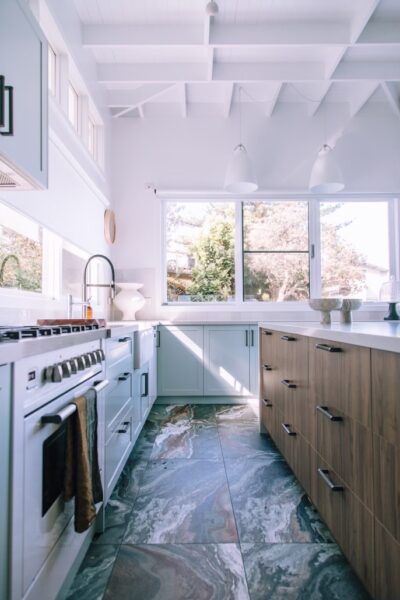
When it comes to embarking on the journey of building or renovating your dream home, there are essential steps that pave the way for a successful construction process. One of the key aspects often overlooked is the importance of pre-construction agreements. These initial steps lay the foundation for a seamless and efficient building process, ensuring your project is a success. We have outlined below why pre-construction agreements are crucial for the success of all projects and how they can make all the difference in turning your vision into a reality, stress-free.
The Benefits of Pre-Construction Agreements
- Clear Understanding of Project Scope
The first step in any construction project is to clearly define the scope of the work to be undertaken. At concept stage, this would involve a comprehensive assessment of your needs, desires, and budgetary considerations. Through consultations with our experience team, a detailed project brief is developed, outlining the requirements and objectives for your project. This process helps to avoid potential misunderstandings and ensures that everyone involved is on the same page from the outset.
- Realistic Budget Estimation
It’s important from the outset to have an understanding on budgets and for this to be monitored progressively as the design progresses and more information becomes available. This involves detailed cost estimations and financial analysis, as well as coordination of early input from subcontractors and key suppliers. Working with a builder from concept design and into working construction documentation ready to build from allows you to keep your finger on the pulse and prevent unwanted surprises when it comes to presenting final costs, and also enables you to make informed decisions about the design, materials, and scope of work, progressively as decisions need to be made.
- Comprehensive Site Analysis
Every plot of land is unique and presents its own set of challenges and opportunities. As part of the Concept Design process, a thorough site analysis, including factors such as topography, soil conditions, zoning regulations, body corporate requirements and environmental considerations. Understanding the site’s characteristics allows for informed decisions regarding design, engineering, and construction techniques that are best suited for the location, ensuring long-term stability and sustainability.
- Mitigation of Risks and Delays
The construction industry can be fraught with unforeseen challenges and delays. Pre-construction agreements help identify potential risks and provide proactive solutions to mitigate them. Early planning and risk management can save both time and money in the long run, ensuring that your project progresses smoothly and stays on schedule.
- Detailed Project Planning
A well-thought-out plan is the backbone of any successful construction project. Pre-construction agreements involve the development of a comprehensive project plan, outlining the sequence of tasks, timelines, and milestones. This level of detailed planning not only keeps the project on track, but also allows you to have a clear understanding of what to expect at each stage of the construction process.
Step 1: Concept Design & Feasibility
How we do it and what’s involved in our Concept Design Agreements:
- Engage a building designer/architect – Depending on the scope of your project and the style you are looking for, we select the most suitable building designer or architect to undertake concept design drawings.
- Site investigations – Initial site investigations may involve site survey, measuring up the existing building, services investigations and the like.
- Scoping meeting – The first step is to get a clear understanding on the scope of your project. At this meeting, our client/s, building designer/architect and design manager would sit down the run through all the project requirements.
- Design meetings – As drawings and sketches are generated, we hold regular concept design meetings which allows everyone to meet to discuss any changes that need to be made and provide general updates.
- Indicative budget costings – Progressively during this process, our estimating team will update the budget. We will review the plans in detail and advise if there are any tweaks that can be made in order to streamline the design. In some cases, small tweaks in the design can save $10s of thousand of dollars and pay off the investment in detailed design services many times over.
- Concept finalisation – Once concept plans have been finalised and the budget is within expectations, we then proceed into the Design Development & Cost Planning stage where the more detailed design work is carried out. Carrying out a Concept Design Agreement process prior to moving into more details planning ensures that the project is feasible prior to more substantial design expenses are incurred.
Step 2: Design Development & Cost Planning
How we do it and what’s involved in our Design Development & Cost Planning process:
- Engage the relevant consultants – The building design/architect would be reengaged to carry out more detailed working drawings, and other consultants would be engaged to carry out their services. Depending on your project, these may include structural engineer, civil engineer, soil testing/geotechnical engineer, town planner and certifier.
- Design and value management – Our design manager will arrange all site inspections and provide valuable construction and ‘build-ability’ input into the design as it progresses. This is a great value-add for our clients as there are simple changes that can be made to the design in the early stages that can save large sums of money without impacting on the overall design intent. We keep on top of the process and ensure that the agreed timeframes and deadlines are met.
- Scheduling – Nomad Built will provide you with early input into how long the project will take so you can make plans early as to when you need to move out, or when you are able to move in. The earlier you know, the better, so instead of waiting for a builder’s proposal to be submitted (which may or may not include a schedule), we provide this when the design has been finalised.
- Budgeting – More detailed budgeting advice is provided throughout the process as engineering, general detailing and finishes selections are made. This allows you to make informed decisions as design progresses. As plans are finalised, we will update our pricing to suit so you will always know where you stand. Another thorough review of the plans and detailing will be carried out to see if there are any more design tweaks that could be made.
- Arrange certification or construction requirements – Our services are comprehensive and will coordination of applications to authorities such as Local Council, right through to Building Approval (QLD) or Construction Certificate (NSW) stage, whereby construction is able to commence. On unit renovation projects, we will also coordinate all required body corporate submissions on your behalf and provide responses to any queries arising from this process. Please see our separate blog posts detailing the approvals processes in both QLD and NSW for more information.
Step 3: Construction Documentation & Final Costings
The next stage is the preparation of construction documentation and finalising fixed price costings.
- Proposal and contract – Our estimating team will finalise your contract proposal in conjunction with preparation of construction documentation. This proposal will include all the information you need to know about your project, including a fully detailed scope of works, costings and timeframes for your consideration.
- Final plans – You will be issued a final set of construction plans, fully detailed, signed off by all the relevant consultants, ready to build!
Early builder involvement through pre-construction agreements are vital for all projects, regardless of their size or scale. These services set the stage for a successful and efficient building process by providing a clear understanding of the project scope, realistic budget estimation, comprehensive site analysis, risk mitigation and detailed project planning. By investing in these initial steps, you pave the way for turning your dream home into a tangible reality, built with precision, care, and the utmost attention to detail.
If you would like to take the first step towards your dream home today by engaging Nomad Built in a Concept Design Agreement, get in touch with us and we’d be happy to assist!


